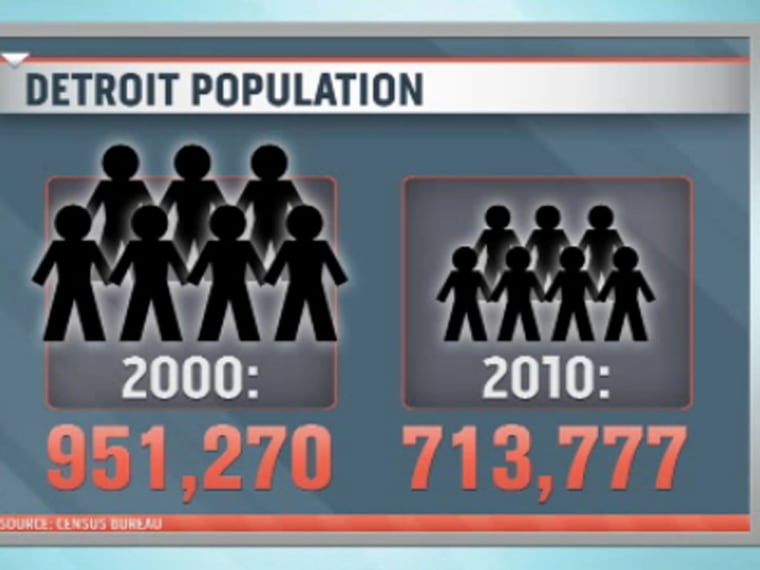The decline of Detroit has been well-documented, but its supposed Renaissance celebrated by celebrities, locals, and politicians alike. Yet, Super Bowl commercials, an Anthony Bourdain endorsement, and the addition of a new Whole Foods does not a Renaissance make.
Filmmakers Rachel Grady and Heidi Ewing appeared on Now w/Alex Wagner Friday and made it clear that the narrative of a city on the rise is a misleading one. Their film Detropia focuses on the problems plaguing what used to be one of America’s most thriving manufacturing cities and the solutions that exist to remedy them and restore the city to a new kind of greatness.
Grady pointed out that many people know how bad the city is doing, but are satisfied with the mainstream narrative that it's on the up and up. Speaking about the Super Bowl commercials done earlier this year that put the city's recovery in the spotlight, she told host Alex Wagner:
A couple commercials and everyone was willing and satisfied with this story that everything is fine for the city and that its coming back but there's 650,000 people there that don’t have a good quality of life. So our story hopefully sheds light on them.

Growth is slow and there are readily apparent problems with infrastructure, education and, by the same line of thought, social mobility.
“We hear a lot about the bailout, how the city was somehow saved with the auto industry bailout which of course was a good thing," Ewing noted. "But until we look at the systemic problems: of lack of transportation, lack of resources, no tax base, and a subpar education system in places like Detroit and other cities like it, then were not really getting to the root of the problem with American cities at all.”
One solution to the issue of vacant lots and abandoned buildings — a problem in many other cities that were once booming manufacturing metropolises — is downsizing it into a more manageable city.
Detroit Mayor Dave Bing has a plan to re-imagine the way space is used in Detroit, seeking to incentivize moving to denser areas and replacing lots with things like gardens and green space.
Now guest Mark Binelli, Detroit-native and author of Detroit Is the Place to Be, says that while “Bing’s plan could end up being one of the boldest re imaginings of urban space in modern history,” the city lacks the funds to enact it. He continued to say:
“There’s a lot of talk, meetings, but no real progress on the right-sizing initiative. Which yes, if implemented the way it was spoken about, it would be an amazing feat.”
Detroit has been a poster child for declining cities for decades now. Grady described the psyche of those who live there as a kind of “gallows humor.” But despite the many obstacles that must be overcome, hope is not lost on the city of Detroit or by those who call it home.
“It’s been an example of a declining city for twenty, thirty years now, and now there’s all this attention…Detroiters are kind of like ‘where have you been?’…They’re frustrated but they’re incredibly hopeful. They stay.”
